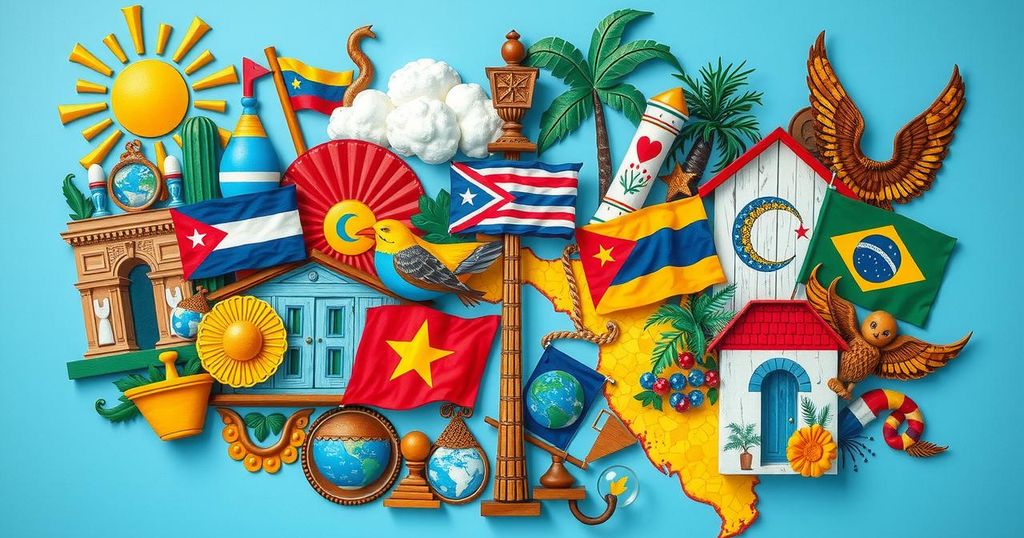South Florida Leaders Blast Travel Ban Targeting Cuba, Haiti, Venezuela

South Florida leaders strongly oppose the Trump administration’s travel ban on Cuba, Haiti, and Venezuela, calling it cruel and discriminatory. They express concern over the potential disruption to families and communities, highlighting the contributions of these populations. Local officials urge federal leaders for a reconsideration of harmful policies and stress the need for an immigration system that reflects American values.
On Thursday, leaders from South Florida expressed outrage over the Trump administration’s travel ban affecting Cuba, Haiti, and Venezuela. This ban, part of a wider restriction impacting 19 nations, has sparked severe backlash from local officials. Miami-Dade County Commissioner Marleine Bastien, who comes from Haiti, called the policy not just cruel but an outright attempt to scapegoat vulnerable populations. “This unjust policy will sow chaos in our communities, separating families and disrupting lives,” she asserted, emphasizing the integral role of the Haitian-American community in Miami-Dade’s culture and economy.
Bastien passionately criticized the targeting of Haiti as discriminatory and a betrayal of core American values—such as compassion and justice. Her comments come in the wake of recent immigration directives that have stripped Haitian migrants of their protections. Moreover, confusion remains among many current U.S. visa holders in Haiti, Cuba, and Venezuela as the ban takes effect this coming Monday, creating anxiety over their futures.
Local elected officials did not hold back in their denunciation of the policy, underlining the significant impacts such decisions will have on the vibrant communities in Miami-Dade and Broward counties. North Miami Mayor Alex Desulme pointed out that the Haitian residents in his city are not merely citizens; they are active contributors to the local economy as business owners, healthcare providers, and educators. He stated, “The reinstatement of this ban is a direct attack on the values of equity, compassion and opportunity that our city and this nation were built upon.”
Emphasizing the fear and division the ban creates, Desulme urged federal leaders to reassess the implications of this “harmful policy” and to develop an immigration system that aligns with the nation’s values and treats all individuals with dignity. Coral Springs Vice Mayor Nancy Metayer Bowen similarly described the ban as an affront to collective humanity, asserting, “This policy is not about safety; it’s about exclusion.” Her sentiments reflect a growing concern among many officials regarding the ethical implications of discriminatory immigration practices.
Interestingly, the political landscape in Miami-Dade has shifted dramatically since Trump’s election, flipping the county red for the first time in decades. Yet the ongoing restrictive immigration policies have placed local Republican officials in a precarious position, balancing support for the administration with the needs of the immigrant communities in their districts. U.S. Representative Maria Elvira Salazar, a Miami Republican, remarked that while travel restrictions could be utilized for national security, it is paramount to protect those with family connections waiting to be reunited with loved ones.
“We must draw a clear line between hostile regimes and the families who suffer under them,” she said, underscoring the long waits many families endure under the current system. Salazar emphasized the need to uphold the foundational American values of hope and freedom, even amidst national security concerns.
The recent travel ban imposed by the Trump administration has drawn significant criticism from South Florida leaders, who highlight the potential harm to communities rooted in the affected nations. Officials emphasized the contributions of the Haitian, Venezuelan, and Cuban populations to local culture and economy, calling for a reassessment of immigration policies that prioritize humanity and compassion. The debates surrounding these issues reveal the complexities faced by local leaders as they navigate the impacts of federal policies on their constituents.
Original Source: www.miamiherald.com







